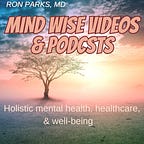
Dream of Dream Work
I was getting off an elevator in a building, and another younger gentleman, who seemed focused on his work and position, recognized me. He asked about the dream journaling article I discussed at a party we all had attended. He seemed interested in the topic, but I wasn't sure from his playful tone if he was interested in some practical information or if he wanted to tell me something about personal concerns or a dream he had had.
Reflection and journaling on the above dream segment reminded me that I had been approached earlier at a party, where I was discussing my dream journaling article. The interested person shared a dream with me and asked what I thought it meant. I replied kiddingly that he'd have to read my article. But then I said that the dream is for the individual to work with because he knows best how to make sense of it. I realized my dream segment reminded me that instead of completing my current dream article and publishing it, I wasn't sure where I was going with it. My floundering around had kept me adding things and making the articles too long. Part of our brain works, always trying to complete undone awake thoughts or emotions in our dream stories or images. The attempts, sometimes fulfilled, are to bring these residues of incomplete segments of ideas and feelings towards satisfactory closure and to be stored away in less active memory storage areas. Any material from remembered dreams or pieces is fertile ground for getting insight, perspective, and sometimes direction for application in waking hours.
My interest in dreamwork and journaling started when I began my psychiatry residency and my mentoring by faculty in my training programs that had in-depth training and experience in Psychoanalytic and psychodynamic psychotherapy work and Jungian depth, analytical psychology with its exploration of the unconscious and transpersonal aspects of human experience with the investigation of dreams, complexes, and archetypes. I used to facilitate a dream group with 8-10 people meeting weekly in the earlier years of my career, further developing my interest and appreciation of dream work. I was also fortunate to have done some Jungian analysis with talented people who utilized dreamwork as part of their psychotherapeutic process.
Most importantly, much of what I learned about dreamwork came from periods when I consistently did dream journaling and personal reflection about the meaning and relevance of dreams to my daily life. The seeking and journey toward wisdom and knowledge is a valued goal for many, as it has been for philosophers, teachers, and spiritual seekers. Dreamwork can be an asset in seeking and exploring a deeper meaning and understanding of yourself and others.
Dialogue as a Key to Finding Perspective and Wisdom
The usual internal mental dialogue and reasoning during wakeful hours help us find perspective and guidance in making choices as often relate to life activities and relationships. External exchanges in a social context with others, including significant relationships, are vital in getting us out of the stuck or locked-in perspectives of our closed-in internal reasonings, beliefs, and rigid ideas. Likewise, dreamwork allows you to develop a self-dialogue between your waking mind and remembered dream material on which you can reflect for insight and perspective on your life and activities. Dream journaling and dreamwork are avenues for use alone by yourself, with a teacher of the art of dreamwork or a trained psychotherapist knowledgeable in doing dreamwork. Dreamwork is a great help to gain perspective, new ideas for your work, insight into your relationships, and deep-help beliefs about yourself.
For some, getting out of locked perspectives and rigid thinking is possible with self-work and self-learned skills. Most can learn reflective journaling, mindfulness, and insight work can be learned and done on one's own. However, a relationship with a skilled psychotherapist can be of great value when one is significantly stuck or caught in mental and emotional issues or past trauma experiences. The therapist is often a trained facilitator in a safe and non-threatening space where the interchanges and discussion can help transition one out of the self-imposed isolation of their thinking and cognitive processing to gain insight and perspective from a supportive and caring other.
The Art of Dream Journaling and Dreamwork
You can harness dreams to witness the informative interaction of yourself or a figure with whom you identify in the dream events that are occurring analogous to what is happening in your awake life or similarity to events or dramas of the day: anything from a relationship with a significant other, a boss, or a person on the street, or in a movie seen on T.V. Dream journaling becomes a revealing inner dialogue with yourself which can bring insight and precious perspective on life issues which can enhance growth and creativity.
Reflection on Dreamwork, Dream Interpretation, and Benefits
The dream's story, characters, or images, when reflected on after awakening, can often bring up the recall of related recent events or linked memories from the past. These can help in understanding and gaining valuable perspective on present life experiences. When helpful, dreams may bring benefits for better clarity, direction, and making wiser, thought-out choices. The anxiety in a dream story and its relation to memories or significant figures in my life have often informed me to take a wiser course of action or proceed with something with more caution and further reflection.
Dreamwork1 is a helpful tool for enhancing awareness and recognizing anxiety, conflict, or indecision that may need attention. It offers a reflective time to tap into a resource that can benefit your life's journey and emotional and mental health—it is like your own handy personal tool, monitoring and feedback for what you might not be aware of or what you may need to see but are avoiding. Healers and therapists, at least in the past, were often trained to study and reflect on their dreams and inner emotional life to be more available and steadier with their own emotional and mental functioning, to be as present as possible for helping another without getting their unworked out inner difficulties entangled with the person for whom they were trying to be helpful.
Interpretation of dreams is an endeavor best accomplished by you, as the dreamer, who can best make associations with the variety and complexities of one's unique life experiences and memories. One can self-learn and improve skills with time, self-study, and practice. Others may need or benefit from a teacher or therapist who can teach them about dreamwork until they are confident and motivated to apply it independently. It can become a path for getting closer to understanding oneself, potentialities, and the realities of one's life. It can be a journey towards self-actualization, as Carl Jung, the renowned writer and psychiatrist, discussed in some of his classic writings.2
For dream journaling,3 any available recording means can be used. It has traditionally been in a dedicated writing pad or notebook where one could write and draw or sketch. A mobile phone app can handily record into a journal like a Word document by quick and easy dictation. Whatever works for you is fine. Recording and journaling allow one to go back, further reflect, and add other associations and thoughts that arise. Some, like me, are slower learners at times and need the benefits of seeing a similar story, theme, symbol, or message to understand what is being conveyed in a dream. For example, suppose someone has a current situation that is very perplexing, stressful, or threatening. In that case, dream journaling might give the impetus to do something about it, get help, change course in one's awake life and activities, or attend to something that needs your attention.
I remember in my early days of dream journalling to have dreams about some malfunction in my car, and in ignoring, not attending to the care of my car, I soon woke to some problem with my car as a flat tire. Of course, there have been prominent warnings that would point to significant areas, such as my work, health, and relationships, that needed attention. A myriad of books and courses are available on sleep and dreaming. There are many skills, however, from which one can learn and benefit in the quest for enhanced sleep and dreaming.
The anxious or frightened mind is often super-alert, focused, or hypervigilant, scanning the environment for a threat. It is the reason the sleep quality can be poor. If dreams arise, they can be nightmarish and wake one up when the luxury of deep sleep is most wanted. Disruptive dreams interfere with our need for restorative sleep to recharge the body and mind. Panic attacks can occur when trauma memories arise, and the body-mind gets hyper-aroused and in a preparatory state. A panic attack's intense physiologic arousal prepares the body for combat or attack, to run or fight. Episodes can be brief but sometimes more prolonged, with a pounding heart, rapid pulse, sweating, racing thoughts, and fearful dread of impending loss of control, death, or physical harm.4,5
You may need support or help if these occurrences repeatedly happen, which could signal developing or impending medical, emotional, or mental health difficulties. It may be the time to seek help or assistance from a trusted other or health care professional. Intense episodes like those described can also mean that the body and mind seek healing, restoration, or emergence to a higher order of wellness and well-being, as in the Spiritual Emergence-oriented transpersonal psychology approach.6
TIPS:
Sleep is the gateway to dreams and is essential for health maintenance and recovery from illness or for the emergence of a higher level of emotion, mental, physical, and spiritual health and well-being. Learn the skill to enhance or get consistent restorative sleep. Always be the caretaker of the body-mind-spirit and sleep, and appreciate the value of dreams and journaling as a self-help and care tool.7
If you have disruptive, disturbed sleep, don't feel restored the next day, or have excessive daytime sleepiness. There are often correctable, underlying causes, and resources are always available, and you are encouraged to seek them out.
Likewise, suppose your sleep and waking life are disturbed by severe anxiety, dreams, nightmares, depression, mood swings, panic attacks, residual upset after severe loss or trauma, or a major disruptive life event. In that case, you may benefit from getting help from a trusted resource, your primary healthcare person, a sleep specialist, or a mental health provider.
Dreamwork can be an invaluable tool that you can use to support yourself in your daily life activities. It can provide a better understanding to help resolve inner turmoil, conflicts, and indecision. It is also a path towards greater understanding and awareness about yourself and others. It can be a tool to support your creativity and benefit you in your life management and relationships. Your interest, further study, and skill-building in dreamwork can be enriching and valuable8.
Part One of this article is at https://www.inmindwise.com/p/dreams-and-journaling-for-mindfulness#details. Please comment and let me know if you would like to participate in a several-session study group on mastering the art of dream journaling. I will be open and accessible for all subscribers to the Mind Wise newsletter, both for beginners and those already working with dreams who want to develop their skills better. Email me if interested at MindWise@substack.com.
Dr. Parks offers sessions for help in gaining clarity and perspective. If interested, click here.
I appreciate your interest. Please share with others. Subscribe to my Substack newsletter and podcast at www.inmindwise.com. All content in this podcast is created and published for educational purposes only, is not intended to be a substitute for professional medical advice, and should not be relied on for medical decisions. Always seek your healthcare provider's guidance regarding medical or mental health conditions. Thank you.
Dreamwork for Insight, Creativity, and Growth: https://www.inmindwise.com/p/dreamwork-for-insight-creativity
Memories, Dreams, Reflections Kindle Edition by Carl Gustav Jung
Parks on journal keeping: Journal Keeping for Health and Productivity, Purpose, Types, Benefits, and Tips,
Dr. Parks on avoiding anxiety and trauma related conditions: Avoiding Anxiety and Trauma-Related Conditions;
NYT's article: The Anatomy of a Panic Attack: https://nyti.ms/3G1hyYl
Spiritual Emergence: http://www.centerforspiritualemergence.com/spiritual-emergenceemergency.html
Sleep Scientist Tip. Article from the NYTimes: https://www.nytimes.com/interactive/2022/08/05/well/sleep-scientist-tips.html
Dream, Dream Work and Journaling, references, and resources:
Dreamwork. (2022, July 27). In Wikipedia. https://en.wikipedia.org/wiki/Dreamwork
The Jungian-Senoi Dreamwork Manual: A Step-by-Step Introduction to Working With Dreams Paperback – January 1, 1988 by Strephon Kaplan-Williams
https://www.scientificamerican.com/article/the-science-behind-dreaming/;
Freud's Dream Interpretation: A Different Perspective Based on the Self-Organization Theory of Dreaming:
Experimental Research on Dreaming: State of the Art and Neuropsychoanalytic Perspectives:
https://www.researchgate.net/publication/344350558_Dreams_and_Psychology;
https://www.sleepfoundation.org/dreams/dream-interpretation;










